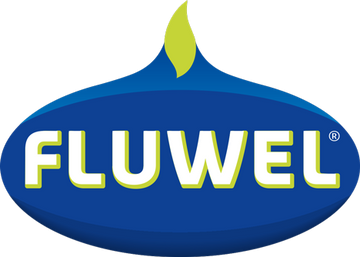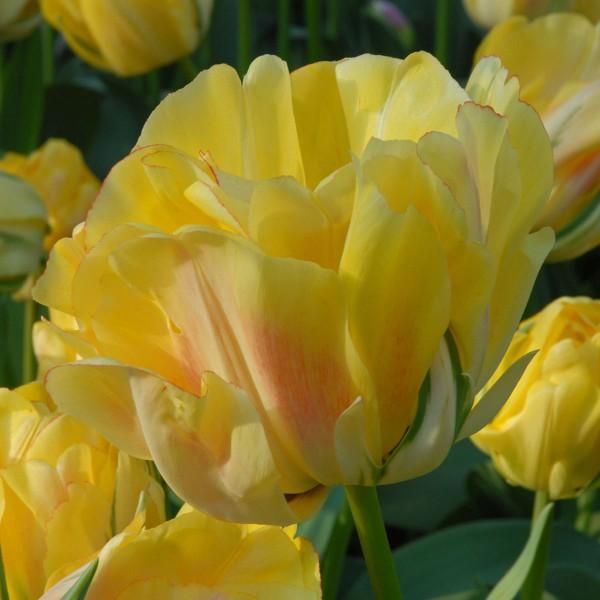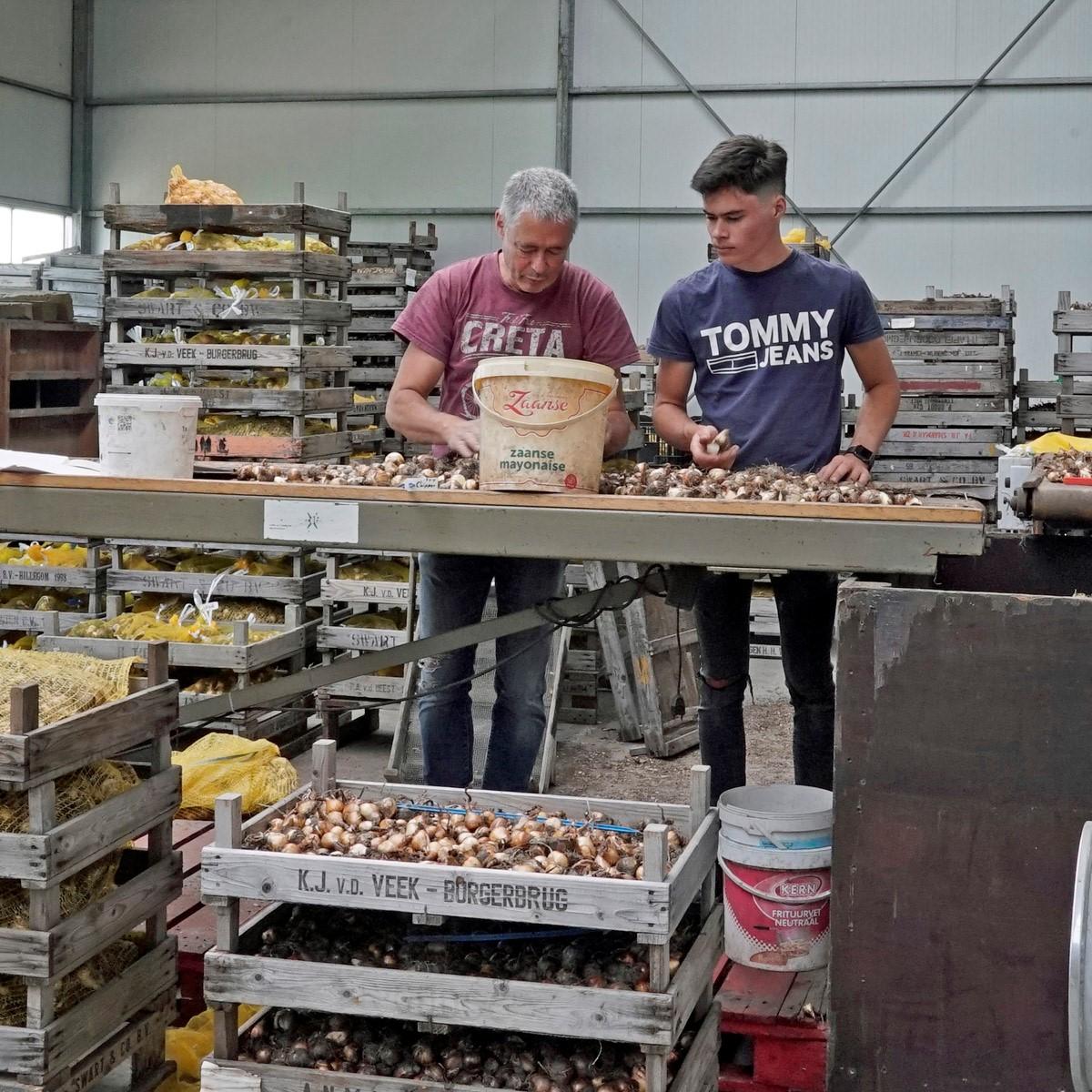Growing organic flower bulbs is not an easy task, but no one does it better than John Huiberts of Huiberts Organic Flower Bulbs. There is a lot to tell on the subject, so today’s newsletter is a little bit longer than usual. Hopefully, after reading, all your questions about this subject will be answered!
Huiberts Organic Flower Bulbs
Ever since 2013, Huiberts Flower Bulbs has been growing organic flower bulbs. They are one of the first and only people to do so. Out of love for their profession and for Mother Nature, they began a way of growing flower bulbs that uses zero chemical pesticides. They realized that not all problems faced by growers could be solved using the existing chemicals. They also recognized that society started to have problems with the use of chemicals: the people are now less willing to buy products that have been exposed to chemicals than ever. All in all, it was about time there was a different take on growing flower bulbs.
Huiberts did not start his new way of growing flower bulbs at random. First, they followed a course on soil biology. In this course, it became more and more obvious that to succeed at growing organic flowers, you have to work together with nature, rather than opposing it. They made the switch to growing their flower bulbs organic and they got certified by SKAL. SKAL is an independent company that confirms that what is called organic by a grower actually answers to the rules of organic agriculture. There are a lot of other ‘organic’ or ‘sustainability’ certificates out there, but most of them do little more than simply confirming that a grower does things according to the Dutch law. SKAL on the other hand really stands for more than just that. Their rules are a lot stricter and they make sure the grower does more than answering to laws he was supposed to be following anyways.
In 2015, Huiberts Flower Bulbs won the Gouden Roerdomp, a prize the government puts out for the one that works hardest on innovation in biodiversity.
Soil Biology: The Science Behind Biological Flower Bulb Growing
Change in flower bulb cultivation is impossible without knowing about soil biology. This is because organic flower bulb cultivation depends on the use of healthy soil: that is what is best for both the flower bulbs and nature itself. Soil biology teaches us that the soil consists of several different layers.
Each of these layers has a totally different composition of soil life. When a field is plowed, all these layers get mixed up in each other, destroying the structure of the soil. therefore, one of the first steps of transferring to a organic way of growing flower bulbs is to switch to a method of plowing that does not involve the mixing of all these layers.
This way of shallow plowing has been gaining popularity in agriculture for a while now. As Huiberts puts it: a good soil composition does not come from manipulating the soil, but from processes caused by living biomass in the soil itself.
To foster this proces, it is important that there are a lot of different plants growing in the field. Directly after the bulbs are dug, a mixture of different plants is sown in the field. These plants improve the fertility of the soil.
They do this through their roots. The roots excrete substances that foster the micro life, which causes a co-operation between plants and fungi. Most people don’t really like the sound of fungi, but these micorrhizafungi can from complex networks that support plants during essential processes.

Mixture of over 11 different kinds of plants
Huiberts Flower Bulbs uses a mixture of over 11 different kinds of plants to sow on to the land as soon as the bulbs are dug. The roots of all these different plants all excrete different substances, and therefore all have a different way of supporting the soil and its life.
But it doesn’t stop at soil life itself: part of the mixture contains plants that are able to bind nitrogen from the air and store it back in the soil. Because of all these different qualities the life of the soil remains diverse and vital, which lessens the chance of disease.
There is another beautiful quality of the organic flower bulb cultivation: the flowering outskirts of fields. In these borders, there is a mixture of flowers and plants that is in full bloom during summer, when the flower bulbs itself have long finished flowering. This mixture of flowers and plants contains nectar and pollen, both vital nutrients to bees and other insects. Because of this, the borders are places where the natural enemies of the aphid reside. This makes the use of pesticide against this plague unnecessary. And last but not least: the blooming borders aren’t only valuable to the soil and the field, they are also a joy to look at.
The Organic Flower Bulb Sector
On Huiberts web site, there is even more information on organic flower bulb cultivation. Everything they say radiates passion for their product.
They believe, rightly so, that the organic cultivation of flower bulbs is the way of the future. It is the way to grow flower bulbs without harming nature, and in the last few years, the demand has risen tremendously. This is noticeable for Huiberts, but also for us at Fluwel.
The customer is asking for organic flower bulbs. People are getting more and more environmentally conscious. We, and every other farmer with us, is delighted by this trend. Nature is our life and stands at the base of our companies, so we like to see it in the best possible health. We love to see people speaking out about it.
But we also see that customers are still customers. While the demand for organic products is high, and people are asking about organic flower bulbs all the time, we don’t sell much of them at all. Organic flower bulbs are more expensive than regular flower bulbs. On our web site, where we sell both, it is painfully obvious that people’s concern about the environment expresses itself in words rather than in deeds. The concerned civilian and the cost conscious customer are one and the same person, and that person is more likely to act in favor of the latter. We are all guilty of that.
Because it is a fact that John Huiberts, who absolutely pours his heart and soul into his company, can barely afford to live his life. The organic flower bulb sector is hanging on by subsidies and a small number of buyers. This is absolutely unheard of, as the work they do benefits the whole flower bulb industry as well as our planet.
When it comes to it, a lot of flower bulb growers need Huiberts’ expertise to keep their soil healthy, even if they don’t primarily grow organic flower bulbs themselves. John Huiberts is essential.
Knowing all this, it is understandable that there are not a lot of organic flower bulb growers out there. At the end of the day, customers simply want the cheapest option.
The same thing goes for larger buyers, like counties and parks. The organic flower bulb sector just isn’t profitable at the moment, and that scares a lot of aspiring growers off. It is a hard and courageous decision to start growing flower bulbs organic. You can believe in the product all you want, but you can’t eat passion, and with a young family and a personal life it just isn’t appealing to growers to go organic.
You can change this. You can choose the slightly more expensive organic flower bulbs over the regular ones. We both sell them at Fluwel, the organic flower bulbs we sell come from John Huiberts himself. You can support the organic flower bulb sector, and this actually helps.
You may think that you are just one customer and you can’t make a difference, but that is wrong. You can, because with you there may be hundreds of others who think that they are alone. Together all these people form a crowd that can demand change and actually start it. Don’t just ask for organic flower bulbs, but actually buy them.
Kind regards,
Pien van der Veek

 Deutsch
Deutsch English
English Nederlands
Nederlands Camassia Sacajawea
Camassia Sacajawea


 Muscari Fantasy Creation
Muscari Fantasy Creation

